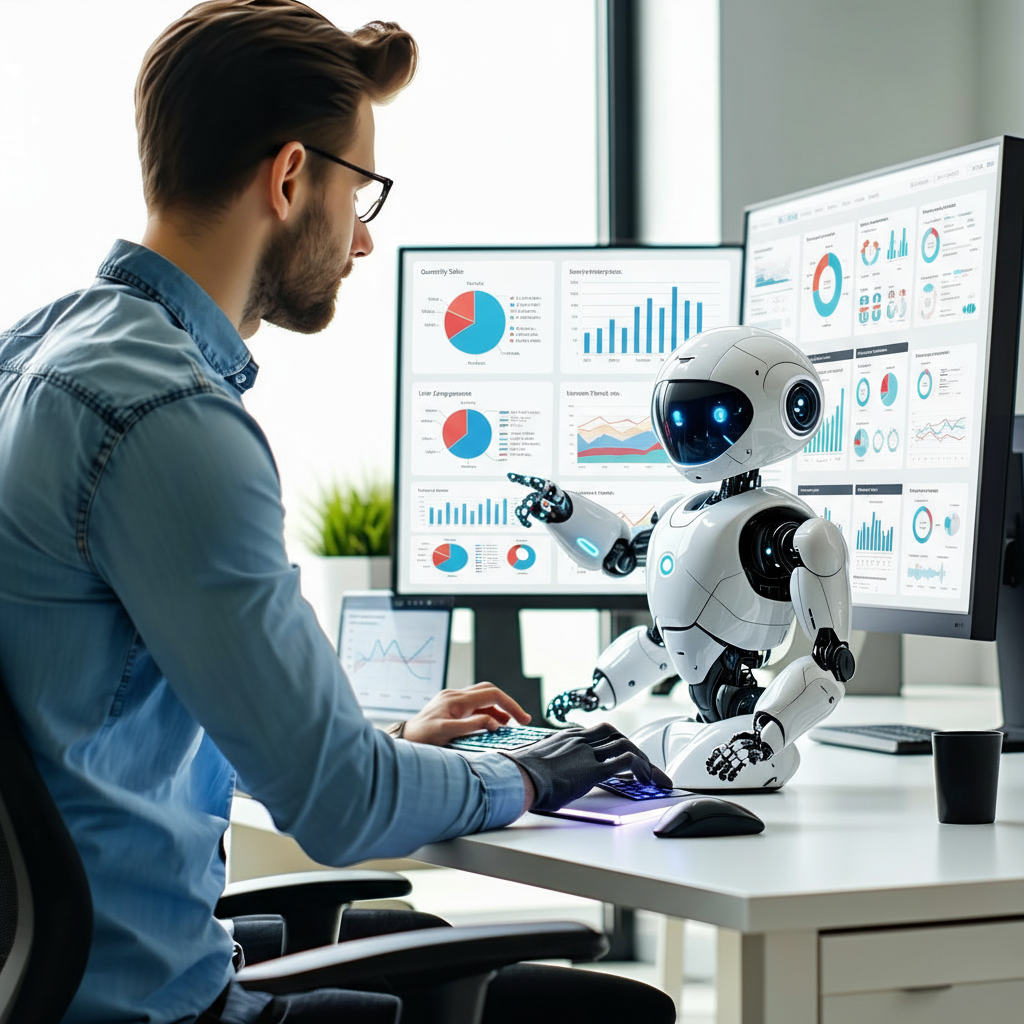The future of SEO teams is human-led and agent-powered
Search Engine Land recently argued that the next era of SEO will be driven by close collaboration between human strategists and autonomous AI agents. As the article put it, “The smartest SEOs won’t fight AI – they’ll lead it.” This shift invites teams to rethink roles, workflows, and success metrics to combine human judgment with automation’s scale and speed.

What the change means
AI agents can take on time-consuming, data-heavy tasks—keyword discovery, routine audits, reporting, and performance monitoring—freeing human team members to focus on strategy, creativity, and stakeholder alignment. The result is a hybrid model where machines surface opportunities and humans decide which ones to pursue and how to execute them in ways that align with brand voice and business goals.
Key takeaways
- AI handles repetitive, data-intensive tasks at scale.
- Human strategists retain responsibility for creative direction, prioritization, and contextual judgment.
- Roles evolve: SEOs become AI-orchestrators who validate and refine agent outputs.
- Teams that adopt the hybrid model move faster and can allocate more time to testing and experimentation.
Analysis and implications for agencies and in-house teams
For agencies and in-house groups, this model changes hiring, training, and tool investment. Rather than hiring for narrow task-based specialties, organizations should prioritize cross-functional problem solvers who can blend technical SEO, analytics, and content strategy. Investment in AI tools must be paired with training that teaches staff how to interrogate agent outputs and integrate them into broader strategies.
Performance measurement also requires adjustment. AI can identify correlations and generate recommendations, but humans must evaluate whether those recommendations translate into meaningful business outcomes—improved conversions, better user engagement, or stronger brand signals. Teams should adopt mixed KPIs that combine quantitative gains (rankings, organic traffic) with qualitative measures (content relevance, user satisfaction).
Actionable steps to implement a human-led, agent-powered workflow
- Audit your processes. Map current SEO workflows and identify repetitive tasks ripe for automation—routine audits, link checks, and rank tracking are good starting points.
- Choose pilot agents carefully. Start with a single agent or tool that addresses a high-impact, low-risk task. Evaluate accuracy, transparency of suggestions, and ease of integration with your stack.
- Train your team. Provide hands-on training so staff learn how agents generate outputs, where they err, and how to validate and prioritize agent recommendations.
- Establish human-in-the-loop controls. Design workflows where every AI suggestion is reviewed by a team member before implementation, at least during the pilot phase.
- Measure holistically. Track both AI-driven efficiency gains (time saved, automation coverage) and business outcomes (organic conversions, engagement metrics).
- Scale iteratively. Once pilots prove value, expand agent responsibilities incrementally, and document governance, escalation paths, and ethical considerations (content accuracy, brand voice preservation).
Risks and guardrails
AI agents are powerful but imperfect. Common risks include hallucinated recommendations, misinterpretation of context, and over-optimization that harms user experience. Guardrails—versioned prompts, validation rules, and human review checkpoints—help mitigate these issues. Maintain a single source of truth for strategic priorities so agents optimize toward business goals rather than short-term ranking metrics alone.
Practical example
Consider a mid-sized e-commerce site. An AI agent runs daily checks for site health and identifies pages with declining clicks. The agent drafts content refresh suggestions and pulls relevant keywords. A human strategist reviews the suggestions, prioritizes pages by business value, and directs writers to update content with a specific brand tone and conversion focus. After implementation, the team monitors performance; the agent continues to track changes and flags new opportunities. In this loop, AI accelerates identification and drafting, while humans ensure alignment, quality, and brand voice.
Conclusion
Human-led, agent-powered SEO teams balance automation’s efficiency with human strategic judgment. By delegating routine work to AI and concentrating human effort on decisions that require nuance, teams can become faster, more innovative, and more strategic. For organizations willing to invest in tools, training, and governance, this hybrid model offers a clear path to more effective, sustainable SEO outcomes.
Original article: https://searchengineland.com/future-seo-teams-human-led-agent-powered-463872
Quote from the original article: “The smartest SEOs won’t fight AI – they’ll lead it.” — Search Engine Land
SEOteric: https://www.seoteric.com













.png)

